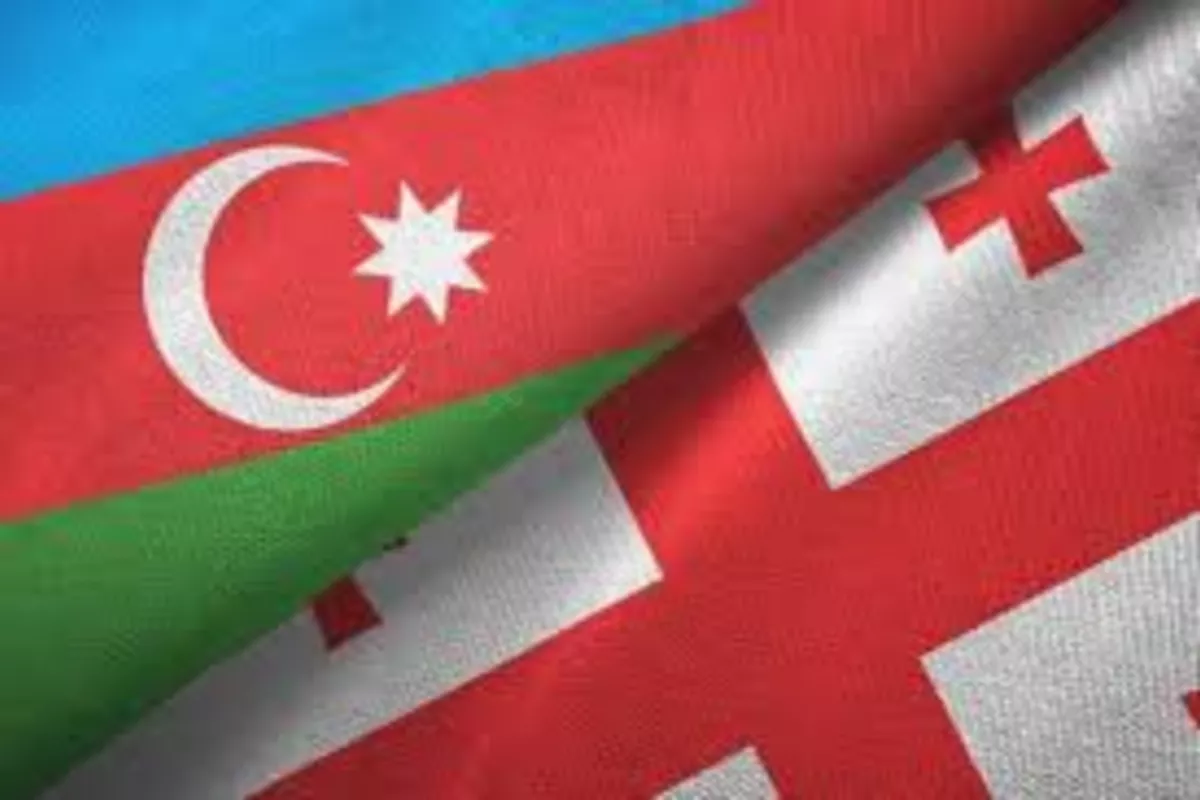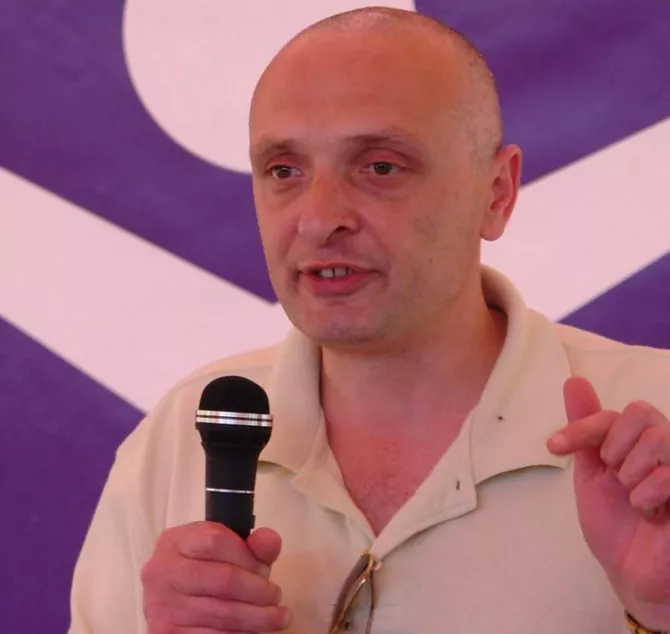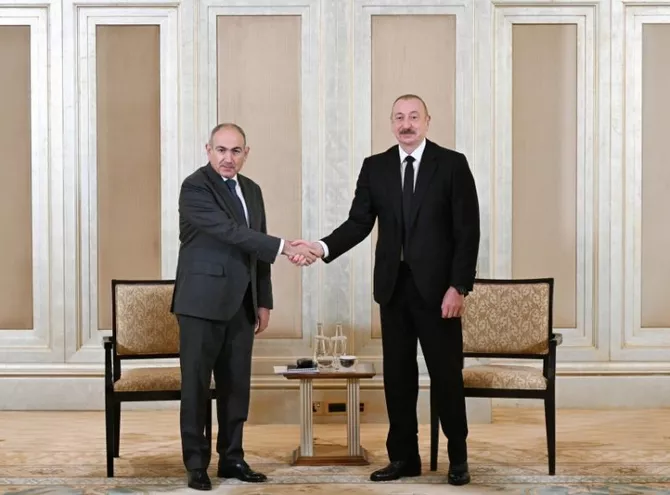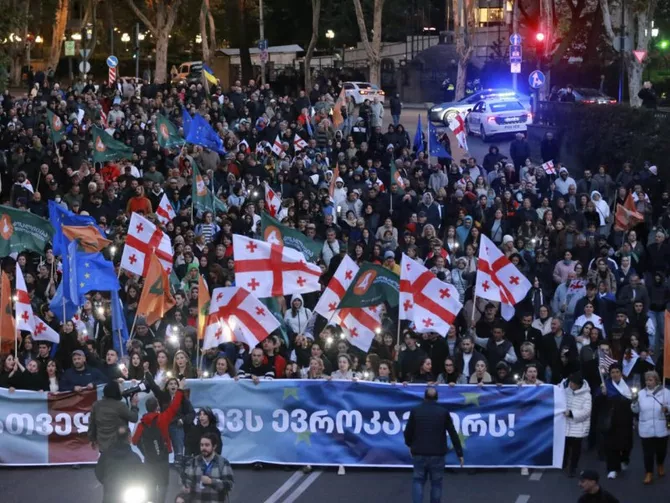
photo: AirCenter.az
The Caspian Post has interviewed Georgian political analyst Gia Kuchava.

- The Georgian authorities are openly expressing their intention to resume passenger railway service with Azerbaijan as soon as possible. However, as is well known, Azerbaijan still maintains a special quarantine regime, which includes the closure of land borders. What is behind Georgia’s intentions?
- Throughout this year, Georgian media have repeatedly reported on the possible reopening of railway links with Azerbaijan. In February, it was reported that train service would resume on May 1, but then the date was pushed back to May 28. However, this reopening was later postponed indefinitely due to the land border restrictions introduced by Azerbaijan.
During a recent visit to Azerbaijan by Georgia’s Minister of Economy and Sustainable Development, Mariam Kvrivishvili, a meeting was held with President Ilham Aliyev, during which, among other issues, the restoration of railway communication between our two countries was discussed.
Just recently, the head of Azerbaijan Railways, Rovshan Rustamov, paid a visit to Tbilisi.
As is well known, Georgia is actively modernizing its transport infrastructure to integrate into both regional and international transportation markets, thereby strengthening its position in the global logistics network.
At the meeting, Mariam Kvrivishvili emphasized the strategic importance of Georgia’s ongoing infrastructure projects, including the expansion of the Baku-Tbilisi-Kars railway project and the deep-water port of Anaklia, which is expected to be completed by 2028-2029.
Today, Azerbaijan is one of Georgia’s key trading partners. With a trade turnover of $522.9 million ($282 million in exports and $240.6 million in imports), it ranks sixth. Should railway service resume, trade between our countries could increase significantly.
Moreover, the reopening of rail links would have a positive impact on cross-border trade for both nations.

Photo: AZERTAC
- How do you assess the meeting in Abu Dhabi between the leaders of Azerbaijan and Armenia? In your opinion, how realistic is the prospect of a peace agreement between Baku and Yerevan?
- First and foremost, I must emphasize that the meeting in Abu Dhabi between Azerbaijani President Ilham Aliyev and Armenian Prime Minister Nikol Pashinyan was the first bilateral meeting between the leaders without any intermediaries. In my view, this meeting offers a chance to create a new balance in the South Caucasus, particularly in the context of Russia’s declining influence in the region.
The text of the peace treaty between Azerbaijan and Armenia was agreed upon back in early spring of this year, but it has not yet been signed. Official Baku has set forth several conditions: amending the Armenian Constitution, which references Karabakh; dissolving the OSCE Minsk Group, which had a mandate to resolve the conflict; and the withdrawal of European Union observers from the Armenian side of the border.
The Armenian side appears willing to make all necessary concessions. However, the ruling party in Armenia is powerless when it comes to constitutional amendments, as a referendum is required-something experts believe cannot realistically take place before 2026.
Jirair Libaridian (an Armenian-American historian who has served as advisor to Armenia’s first president Levon Ter-Petrosyan, as First Deputy Foreign Minister of Armenia, and as Secretary of the Armenian National Security Council) told the BBC that “the constitutional issue could be resolved through some interim agreement.” Prime Minister Pashinyan believes that once the peace agreement is signed, the Constitutional Court of Armenia could rule that it does not contradict the Constitution’s preamble, thereby easing Azerbaijan’s concerns over territorial claims.
Nonetheless, I believe President Ilham Aliyev’s concerns are entirely justified. As is known, Armenia long served as Russia’s unsinkable aircraft carrier in the South Caucasus. Just before the Abu Dhabi meeting, Armenian security services thwarted a coup attempt aimed at restoring revanchist forces to power. According to Ukrainian and several Western media outlets, citing Ukraine’s military intelligence (GUR), Russia is bolstering its military presence in Armenia. Notably, just prior to GUR’s statement, Russian media revived the Karabakh issue-Vladimir Medinsky, former Minister of Culture and now an aide to the Russian president, referred to Karabakh as a “disputed territory.” Russian officials also demanded that Baku recognize the Russian annexation of occupied Ukrainian regions, suggesting that only afterward would Moscow recognize Karabakh as sovereign Azerbaijani territory.
Against this backdrop, Russian intelligence services are stoking internal unrest in Armenia, betting on the return of revanchist forces. In fact, on one of Vladimir Solovyov’s programs, the well-known Margarita Simonyan explicitly floated the idea of a military coup in Armenia, supported by Russian troops stationed in Gyumri, and the assassination of Prime Minister Nikol Pashinyan.
Let me remind you that in early 1998, Russian intelligence orchestrated mass unrest in Yerevan, resulting in the resignation of then-President Levon Ter-Petrosyan. At that time, Ter-Petrosyan and Heydar Aliyev had reached an agreement to reintegrate Karabakh into Azerbaijan’s constitutional framework while granting broad cultural autonomy to its Armenian population. In 1999, Russian intelligence eliminated Parliament Speaker Karen Demirchyan and Prime Minister Vazgen Sargsyan, who were the main opponents of President Robert Kocharyan. After the 44-day war, Chief of the Armenian General Staff Onik Gasparyan attempted, unsuccessfully, to stage a coup.
Therefore, while Pashinyan claims that the peace deal does not contradict Armenia’s constitution, in the event of a successful coup or military takeover, the Constitutional Court could reverse its ruling.
In my view, the signing of a peace agreement between Azerbaijan and Armenia largely depends on Armenia’s internal political stability and how effectively Prime Minister Pashinyan’s government handles external threats.
- In Georgia, pro-European integration protests have been ongoing since November 2024. Has anything changed in the protest movement?
- The protest movement began immediately after the October 2024 parliamentary elections, in which the ruling Georgian Dream party won. The radical opposition and Georgia’s fifth president, Salome Zurabishvili, refused to recognize the results, claiming electoral fraud. After the protests subsided, Prime Minister Irakli Kobakhidze announced the suspension of EU accession talks, which triggered a new wave of protests.
There has been no significant change in the protest movement. Demonstrations are mainly attended by radical opposition activists.
It is worth noting that before Irakli Kobakhidze became Prime Minister, the ruling party allowed the opposition and dissenters to “let off steam.” But under Kobakhidze’s leadership, Georgian Dream has refused to make any concessions or compromises-just as the United National Movement did when it held power. If this trend continues, any minor incident could ignite a political explosion that no one currently anticipates.

photo: AP
- Eight Georgian opposition parties have announced a boycott of the municipal elections. Recently, the opposition party “For Georgia” and the “Strong Georgia” coalition signed a cooperation agreement for the municipal elections. How would you comment on this move?
- Representatives of the radical opposition and former President Salome Zurabishvili claim that the election results were rigged, making the current parliament illegitimate and thus lacking the authority to call municipal elections. I do not agree with this view. Opposition representatives and observers were present at polling stations during the 2024 elections, and they signed off on the results, receiving copies of the protocols. If there had been any falsification, opposition parties could have tallied their own results and presented discrepancies as evidence both domestically and internationally. Without such evidence, claims of fraud amount to demagoguery and an attempt to mislead the public.
The radical opposition’s argument that participating in elections would legitimize Georgian Dream’s power is, in my opinion, absurd. The ruling party has minimal capacity to rig elections.
Despite the fact that members of the “Gakharia for Georgia” and “Lelo” coalitions did not enter parliament, they have expressed a willingness to participate in municipal elections.
This decision has angered parties supporting a boycott. However, I believe that boycotting elections is the wrong choice, as it risks further marginalizing the radical opposition. Moreover, a boycott without widespread protest or national civil disobedience is meaningless-and such disobedience is currently unrealistic in Georgia.
Avoiding political marginalization likely influenced the decisions of Giorgi Gakharia and Mamuka Khazaradze. Therefore, I personally view the cooperation between “For Georgia” and “Strong Georgia” as the correct step.
Appearing on the TV Pirveli show “Reaction” with Inga Grigolia, Giorgi Gakharia admitted that the ruling party has more supporters than the opposition would like. “Our main goal is to reduce the number of Georgian Dream supporters,” he stated.
Finally, due to the nature of local elections, victory in municipal races is more difficult than in parliamentary ones-and the opposition fully understands this.
By Asif Aydinly
Share on social media